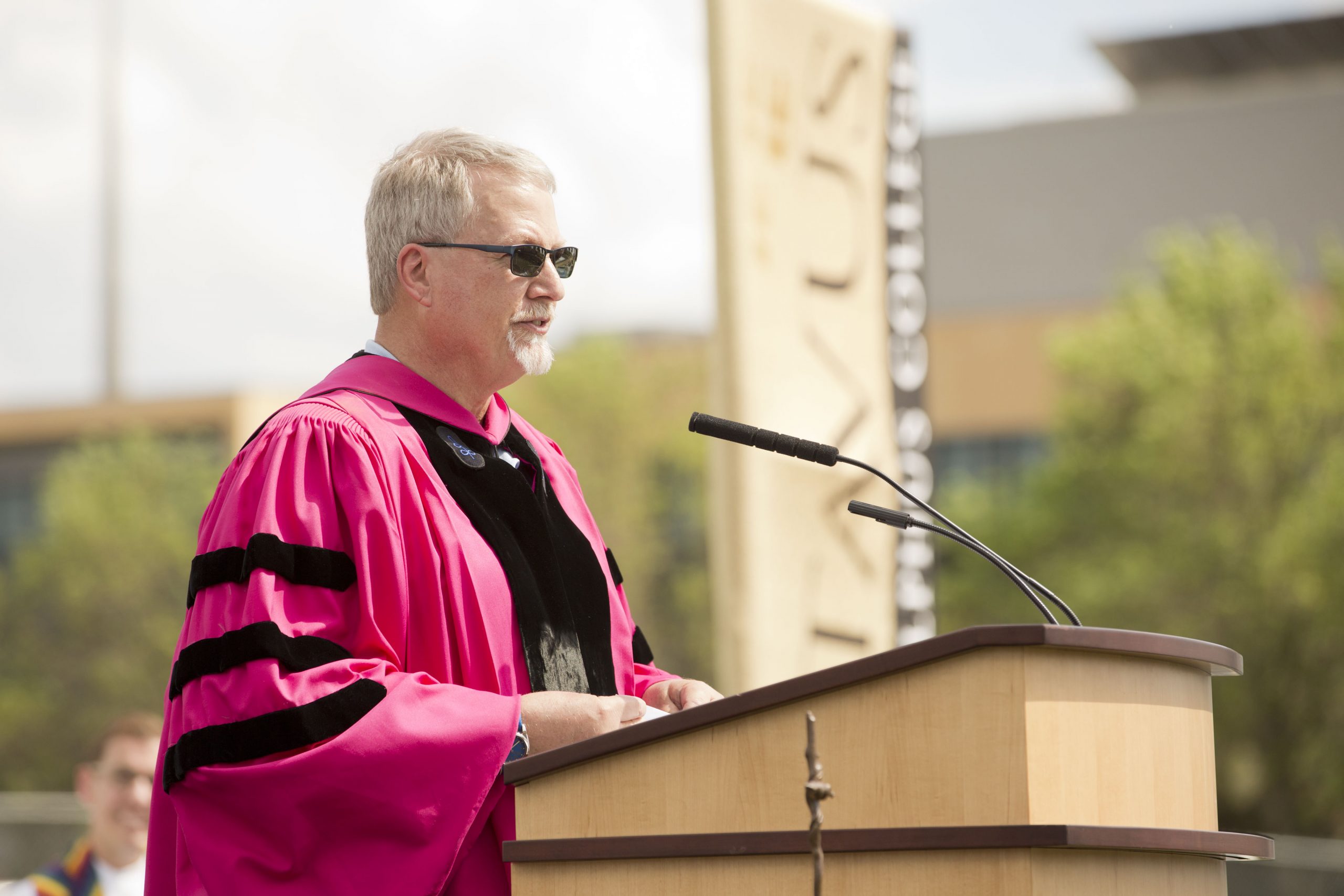(Editor’s note: The Edgar M. Carlson Award was established by the Gustavus Board of Trustees in 1971 to honor former President Edgar Carlson for his years of distinguished leadership and his commitment to academic excellence. At Commencement, one faculty member—selected by the Provost based on the recommendations of previous award recipients—is honored for their exceptional skill and effectiveness as an instructor.)
“Everything in our society has a history. If things have changed over time, they can change again,” Carlson says.
This even applies to the way in which societies think and act on emotions.
Carlson teaches European history, specifically medieval and Tudor-Stuart England, medieval Christianity, the Reformation, European Jewish history, and Modern Germany. During his upcoming sabbatical, he’ll begin writing a book on anger in medieval and early modern England.
“Studying the history of emotions is a relatively new field,” explains Carlson, who will draw on theology, anthropology, psychology, and literature throughout the interdisciplinary project. The project will explore how the perception of emotions—what was considered acceptable regarding emotions—changed from the 11th to 17th century. “Emotion and sin are things that people consider timeless. I’m interested in showing how specific sins are defined and can change over time.”
What has long remained consistent is Carlson’s continued dedication to his scholarship and his students. The author of three books and numerous articles and essays, Carlson has been a member of the faculty at Gustavus since 1990. In 2009 he was recognized with the Gustavus Faculty Scholarly Achievement Award. In 2016, he was the recipient of the 2016 Edgar M. Carlson Award for Distinguished Teaching.
“In his classes, he instills a spirit of confidence and curiosity,” writes one student in the Edgar M. Carlson Award nomination. “His ability to accept us for who we are and inspire us to be the best we can is an invaluable quality,” writes another.
“I want all of my students—even if they just take one class from me—to leave remembering that they can make a difference and should always believe in the possibility of change,” Carlson says.
Nothing to be angry about here.

Leave a Reply
You must be logged in to post a comment.